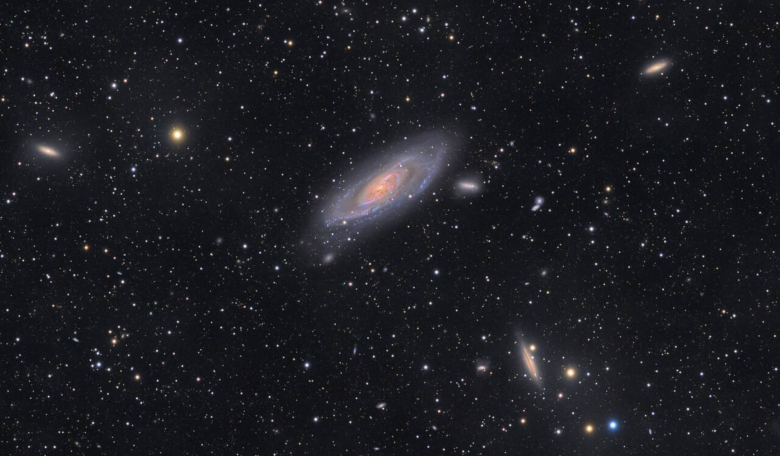According to the standard model of Cosmology, the Universe has been expanding ever since it was created in the Big Bang. Its expansion, which is faster now than in the beginning, is due to dark energy - a mysterious force thought to make up around 70 percent of the Universe.
But now this leading theory could be turned on its head as a new study by scientists at the University of Copenhagen suggests that the effect from this repulsive ‘dark’ force can also be explained by magnetic forces from an as un-yet discovered dark matter particle. Should their model stand, it means that dark energy simply doesn’t exist.
Dark energy was first invoked in the late 90s to account for why light from distant supernovae was slightly too faint than expected from a model which predicted an expanding, yet slowing Universe.
Calculations of this puzzling turn of events later revealed that actually, the opposite was happening, and instead something was making the Universe expand at an ever-increasing rate. But what?
It was noted that the properties of this strange dark energy seemed to match a concept introduced by Albert Einstein known as the cosmological constant.
The cosmological constant describes an energy density of space and was used by Einstein to create a static Universe. His General Theory of Relativity predicted that the Universe must either expand or contract - outcomes that did not appeal to Einstein as he believed the Universe was static – so he added this new term to stop the expansion.
He later abandoned this “fix” when Edwin Hubble proved that the Universe was expanding and called it the greatest professional blunder of his life.
However it was later realised that the negative pressure component of the constant could be used to explain this newly discovered force dubbed ‘dark energy’ and in modern cosmology the constant is now associated with the energy density of the vacuum of space.
This energy density is thought to make up around 68 - 70 percent of the Universe, whilst dark matter, which was used to explain why galaxies do not fly apart, makes up about 27 percent. The rest, a whole 5 percent, was attributed to normal matter - the stuff that makes up everything we can can see in the Universe, such as us, Earth stars and galaxies.
Given that so little is known about dark energy, scientists are constantly assessing new ideas to test its underlying physics and now a new model by a Danish team of researchers, could be about to show that the concept of dark energy is no longer needed.
“If what we discovered is accurate, it would upend our belief that what we thought made up 70 percent of the universe does not actually exist. We have removed dark energy from the equation and added in a few more properties for dark matter. This appears to have the same effect upon the universe’s expansion as dark energy,” explains Steen Harle Hansen, an associate professor at the Niels Bohr Institute’s DARK Cosmology Centre.
In the researchers’ new model, the cosmological constant is done away with and instead different parameters have been added to the 25 percent share of dark matter.
“We don’t know much about dark matter other than that it is a heavy and slow particle. But then we wondered—what if dark matter had some quality that was analogous to magnetism in it? We know that as normal particles move around, they create magnetism. And, magnets attract or repel other magnets—so what if that’s what’s going on in the universe? That this constant expansion of dark matter is occurring thanks to some sort of magnetic force?” asks Steen Hansen.
And indeed that seems to be the case. By assuming that dark matter particles have a type of magnetic force and extrapolating what effect this force would have on the Universe, it turns out that it would have exactly the same effect on the speed of the university’s expansion as we know from dark energy, Hansen explains.
Before we start re-writing the textbooks, the team are eager to point out that more needs to be done to fully understand the consequences of their simulations and that better models that take more factors into consideration need to be completed.
“Honestly, our discovery may just be a coincidence. But if it isn’t, it is truly incredible. It would change our understanding of the universe’s composition and why it is expanding,” Hansen says. “As far as our current knowledge, our ideas about dark matter with a type of magnetic force and the idea about dark energy are equally wild. Only more detailed observations will determine which of these models is the more realistic. So, it will be incredibly exciting to retest our result.











